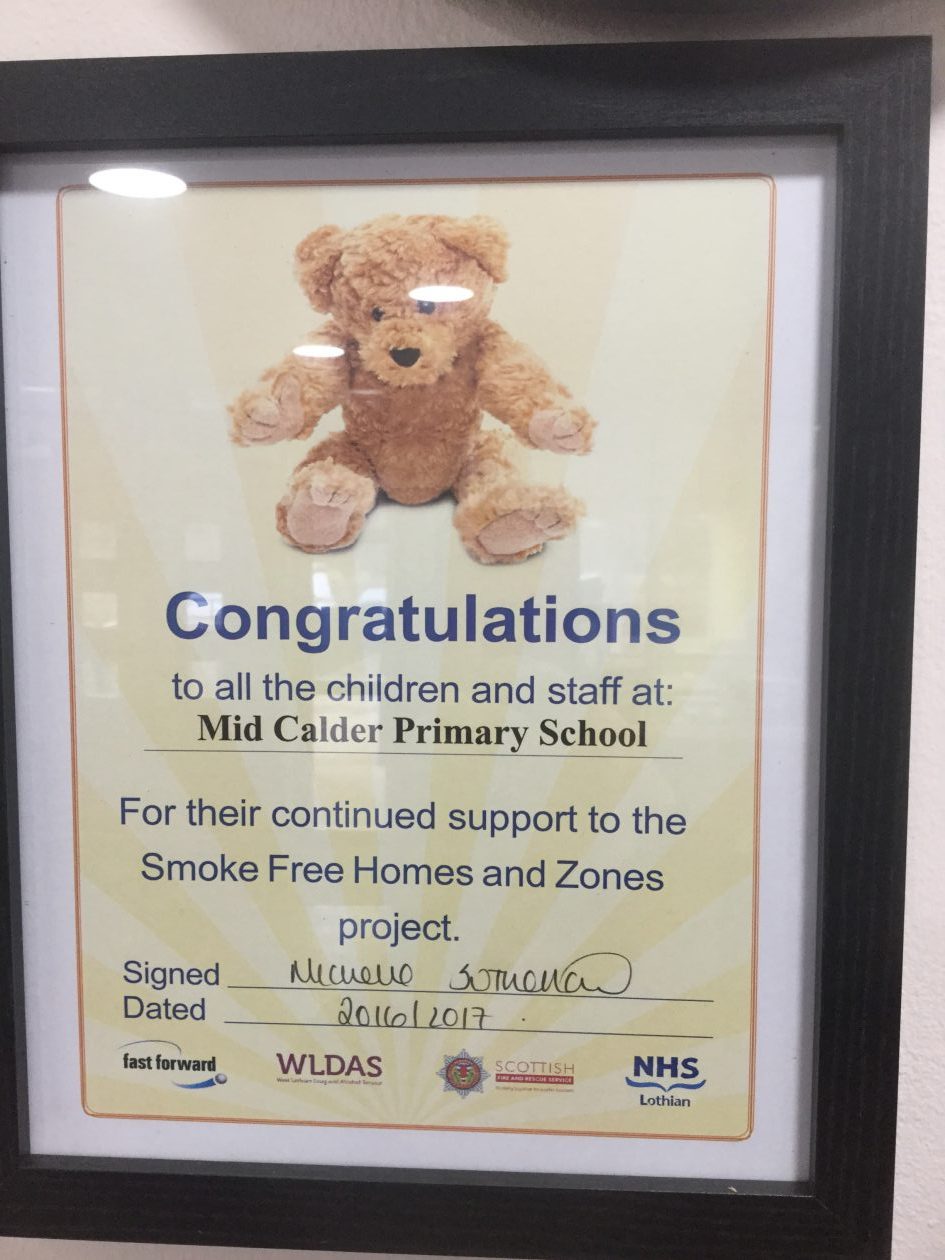On Friday afternoon the Magical Mediators and their parents/ carers were invited along to the West Lothian Stellar Awards at Howden Park Centre where they received the winning award for Responsible Citizens.
The information below details why these group of pupils were nominated for the award and the impact they have had on the school and themselves. A big Congratulations to all the Magical Mediators for this huge achievement, we are very proud of them.
https://www.westlothian.gov.uk/article/13221/Spotlight-on-pupils-at-Stellar-Awards
- How the outcome was achieved, were there barriers, new ideas, teamwork etc.
Over two years as a Senior Management Team we recognised that we were having ongoing issues in the playground. As part of a way to address the issues we introduced Responsible Roles for Primary 7 pupils which included:
- Playful Pals: They have the responsibility of teaching younger pupils playground games, looking after the playground equipment and ensuring children are not on their own at break and lunch times.
- Safe Security: They have the responsibility of ensuring the playground area and toilets areas safe and pupils are using the facilities responsibility.
- Magical Mediators: They operate a peer mediation programme which helps pupils solve disputes in the playground through a coaching programme.
The Primary 7 pupils filled out an application form and were allocated a role depending on their knowledge, skills and qualities, they then underwent training for their specific role.
- Who was involved/ affected – those involved, those supporting, those who benefitted.
Initially the Magical Mediators were trained along with St. Ninian’s Primary by the Scottish Mediation Network, the pupils now run their own training programme. They work in partnership with the pupil support workers and are supported by the depute head teacher. The Magical Mediator service is offered to P1-7 pupils. Our Magical Mediators are still in regular contact with the Scottish Mediation Network, who have written case studies about our programme to share our learning with others.
- What was learned.
The Magical Mediators help our pupils become independent by helping them develop conflict resolution skills there preparing them with skills for learning, life and work. Pupils in the school have become more solution orientated by trying to solve their own problems first before asking an adult for help.
The Magical Mediators programme has impacted hugely on their Primary 7 leadership skills as they have responsibility for leading and developing the programme. They have developed their communication skills in a number of ways from promoting and advertising the service through Assemblies, promotion videos and our school blog to how they communicate with the pupils who use their service. They have developed resilience and problem solving skills in order to independently overcome difficult situations. They have also developed their organisation skills by
- What makes the achievement/project/group/individual special.
Our Magical Mediators have represented our school and West Lothian at the Scottish Medication Conference and more recently they were asked to share our journey to schools across Scotland at the Scottish Young Talks Conference. At this conference they received an award from the Scottish Mediation in recognition for our Outstanding Contribution to Peer Mediation in Scotland by a School.
- What are the lasting impacts of the achievement/project etc.
Our Magical Mediators continue to have a lasting impact on the health and wellbeing of the pupils in our school. It is a sustainable programme, as the Primary 7 pupils have developed training workshops to train the new magical mediators each year. We regularly support the Scottish Mediation Network with their research and have appeared in their Young Talks Magazine several times.
You can find out more about our Magical Mediators on our blog:
https://blogs.glowscotland.org.uk/wl/mcps/?s=magical+mediators&searchsubmit=






























































































